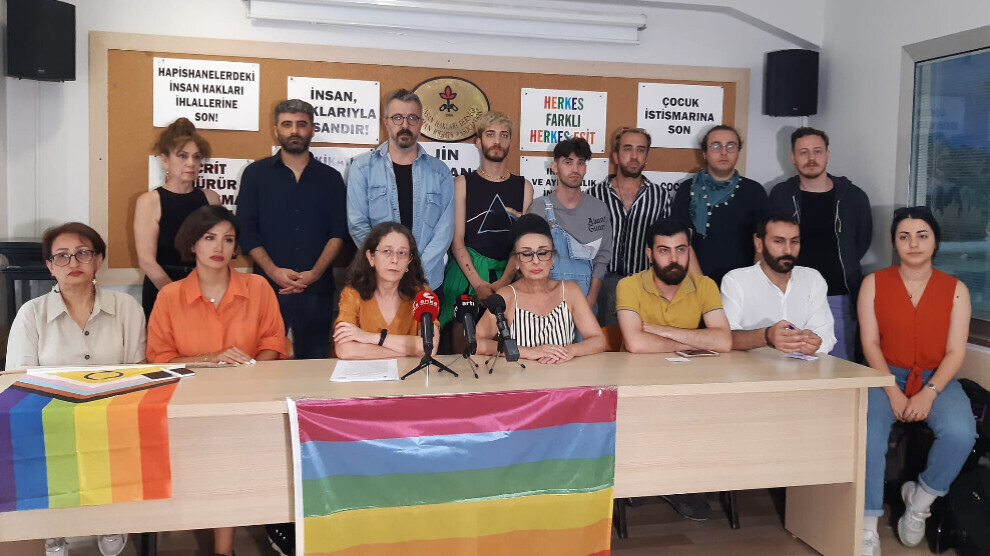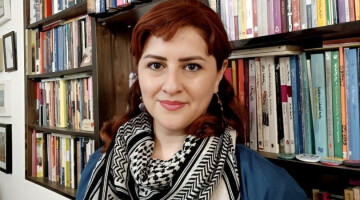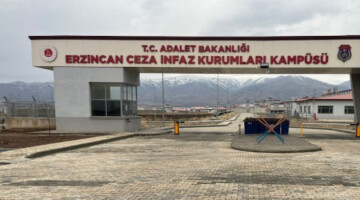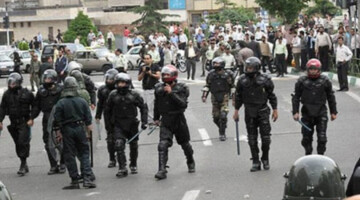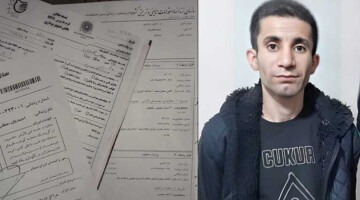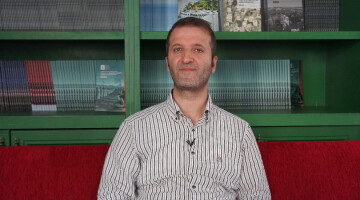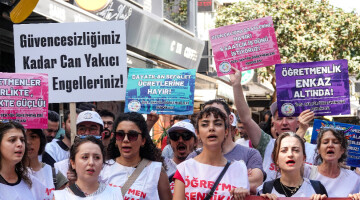An Iranian LGBTIQ activist is facing deportation to his home country. The Human Rights Association (IHD) announced on Friday that Elyas Torabiba-Eskandari was detained last Sunday at a Pride parade in Istanbul and taken into deportation custody. After a stay of several hours at the police station in the Beyoğlu district, Torabiba-Eskandari was initially taken to the deportation centre of the Turkish migration authority in Tuzla. In the meantime, he is being held in an identical facility in the border province of Urfa.
"Neither the IHD nor the ÖHD (Association of Lawyers for Freedom) has yet managed to establish personal contact with Elyas Torabiba-Eskandari," said human rights activist Oya Ersoy from the Istanbul branch of the IHD. Accordingly, the authorities at the deportation centre arbitrarily prevent access to legal advice from lawyers. The IHD fears not only that the activist will be deported, but also that he will face massive persecution in Iran.
Flight from violence, detention and torture
Elyas Torabiba-Eskandari fled Iran ten years ago together with his mother. According to the IHD, both were victims of state violence, arbitrary detention and torture in their home country. Since their flight in 2013, they have been living in Turkey - however, they do not enjoy full refugee protection there in the sense of the Geneva Convention, but only have so-called conditional refugee status. Nevertheless, a deportation would violate the prohibition of refoulement, i.e. that refugees may not be deported to countries where their lives are in danger. However, the IHD regularly documents deportations of refugees from Turkey to Iran, but also to Syria and Iraq, where their lives are in danger.
Homosexuals in Iran face rigid persecution up to and including the death penalty
Oya Ersoy addressed the Ministry of the Interior, among others, at a press conference to intervene against the planned deportation of Torabiba-Eskandari. "Homosexuals, like politically persecuted persons, face rigid persecution up to and including the death penalty. We are extremely concerned for the safety and well-being of Elyas and fear that he may have been tortured in Turkish police custody or deportation detention. We know from others affected by the arrests during the Pride parade that the police left them to starve in a cell for seventeen hours without food or water. We are even more concerned that we have no information about his current whereabouts," Ersoy said. Ashraf Abudzadeh Barayhi, the activist's mother, appealed to the authorities to release her son immediately.
Pride despite ban
Istanbul police on Sunday cracked down on participants of the Pride March in support of gay, lesbian, bisexual, transgender, intersex and queer (LGBTIQ) people and their rights as part of LGBTIQ Pride Week. Large parts of the city centre had already been cordoned off in advance to prevent the officially banned demonstration. The participants then moved to the posh Nişantaşı neighbourhood in the Şişli district. They flew a meter-long rainbow flag from a building and read out a press statement.
Over a hundred detentions
According to the organising committee, the police detained more than a hundred demonstrators, some of whom were subjected to massive violence. Among them, in addition to Elyas Torabiba-Eskandari, were four other non-Turkish nationals who were also allegedly taken to various deportation centres. They are persons from Libya, Russia, Portugal and Australia. It was unclear until the end whether they had already been deported. In their case, too, attempts by lawyers to find out their whereabouts and make contact failed.
Authorities: Queer people threaten the family
In Turkey, government officials and President Recep Tayyip Erdoğan repeatedly express open hostility against LGBTIQ. The governor of Istanbul province, Davut Gül, had announced in advance that he would not allow actions by the queer community that "threaten the family". Several events related to Pride month to raise LGBTIQ visibility had been banned, including a picnic and a film screening. In 2014, a year after the anti-government Gezi protests, more than 100,000 people took part in Pride in Istanbul. Despite the ban a year later, demonstrations still take place every year. In 2022 as well, the demonstration ended with massive police violence and about 200 detentions.

